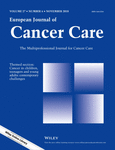General practitioners’ management of cancers in Australian adolescents and young adults
Funding information
This study was supported by the Cancer Australia Primary Care Collaborative Cancer Clinical Trials Group (PC4).
Abstract
General practitioners (GPs) are often the first point of contact adolescents and young adults (AYAs, aged 10–29) with cancer have with the health system, and they are well-placed to coordinate their complex medical and psychosocial care. This study is the first to report characteristics of patients, GPs and cancers involved in AYA cancer management consultations in Australia, using data from a nationally representative sample of 972,100 patient-GP encounters in 2006–2016. AYA cancers were managed in 212 encounters, equating to approximately 137 per 100,000 AYA consultations. This rate was higher in older AYAs (25–29 years) and those who held a concession card. Approximately 30% of cancers managed were classified as “new”, with GPs primarily providing counselling, education, and referrals to specialist care, imaging and pathology. This suggests that GPs are involved in the ongoing care of AYAs with cancer from diagnosis, in conjunction with other healthcare professionals. This is an encouraging indication of the potential for integrated multidisciplinary care extending from active treatment into survivorship; however, further work is needed to explore the changing role of GPs across the cancer trajectory.
CONFLICT OF INTEREST
The authors have no conflict of interests to declare.




